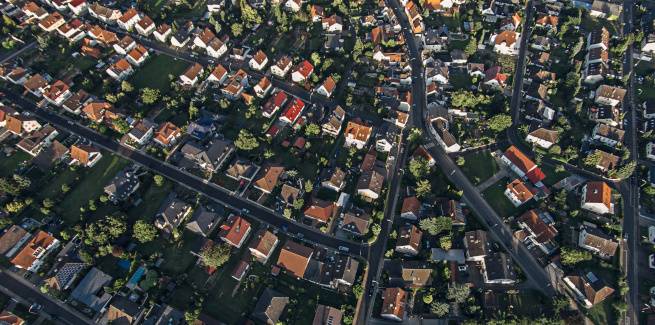A survey of 1,000 current and potential investors, commissioned by the Property Council of Australia, has revealed that the Australian Labor Party’s policy to limit negative gearing to new housing and reduce the capital gains tax discount to 25 per cent would suppress demand for new housing.
According to the research, 33 per cent of potential investors surveyed said they would probably or definitely buy a newly built investment property in the next five years under the existing tax arrangements. However, this number drops to 24 per cent under proposed changes.
The desire of current property investors to buy a newly built property also declined, falling from 34 per cent under current arrangements to 27 per cent under proposed changes.
Just under half (49 per cent) of respondents said they would be discouraged from investing in property if Labor’s policy was to be implemented, while a further 42 per cent would reconsider the type of property they would purchase.
The survey found that current investors would be the most discouraged from investing in property under the proposed changes (58 per cent) compared to potential investors (40 per cent).
The decline in demand for new housing from respondents coincided with a sharp fall in demand for established property, which declined from 42 per cent to 16 per cent among potential investors, and from 30 per cent to 21 per cent among current investors.
Further, the research reported that appetite for any property investment among potential investors fell from 50 per cent under existing arrangements to 20 per cent if Labor’s policy was to come into effect, and from 47 per cent to 25 per cent among current investors.
Moreover, current investors were also asked what the impact of Labor’s policy would have been on their most recent investment decision:
- 46 per cent of respondents said they would have increased the rent charged to tenants for the property: 36 per cent would have paid less for the property
- 33 per cent would have invested in shares or something else instead of property
- 27 per cent said they would have invested in a new property instead of an established property
Reflecting on the results, Property Council of Australia CEO Ken Morrison said that if implemented, the changes could have a significant impact on the property investment decisions made by Australians.
“These findings directly challenge the ALP’s key assumption that its property tax package will stimulate new housing supply and construction,” Mr Morrison said.
“They show that investors will be less likely to invest in newly constructed housing under the ALP’s tax changes, not more likely.”
He added: “This is a critical new insight, because if less new housing is being created for people to rent, it can only mean higher rents in the medium term.”
Mr Morrison said that he is concerned that Labor’s proposed changes would worsen the downturn in the housing construction sector.
“These findings highlight the dangers of making big policy changes at this uncertain time in the property cycle,” he said.
“The ALP policy was first announced a few years ago when Australia’s residential property market was in a very different state.
“Since then, we’ve seen banks tighten up their lending, as well as changes to foreign investment rules, along with falls in residential property values in most markets.”
Mr Morrison concluded: “We are concerned that the proposed changes would drive away investors, which will affect the supply of new and established property to the rental market which is essential for one-third of Australian households.”
However, despite the concerns raised by the property industry, some stakeholders, including national housing campaign Everybody’s Home, have expressed support for the changes as a means to ease housing affordability pressures.
Everybody’s Home campaign spokesperson Kate Colvin said more than 811,000 Australian households are suffering from rental stress as a result of a housing system that favours speculation.
“The government currently spends $11.8 billion on housing assistance for property investors through negative gearing and capital gains tax exemptions – almost twice as much as it spends on social housing, rent assistance and homelessness put together,” Ms Colvin said.
“There’s almost unanimous agreement by everyone that we need to look beyond the self-interest of the already lucky.
“We need to look at these investor perks, which are the most generous in the world, to correct the balance between people buying their seventh investment property and people just wanting to buy a home.”
Ms Colvin has also pointed new polling released by Essential Research, which has reported that 68 per cent of voters support government investment in social and affordable housing over negative gearing tax breaks for property speculators.
The survey also reported that 24 per cent of younger voters aged 18 and 34 preferred investment in negative gearing tax concessions, compared to 38 per cent of voters older than 55.
According to the research, voters still ranked increasing affordability as the fourth most important issue for the federal government to address over the next 12 months, ahead of limiting Australia’s migration rates.
The Everybody’s Home campaign will be joining activist organisations on 14 March when they converge in Sydney Town Hall to “demand urgent action” to alleviate housing and energy cost.
State and federal leaders and politicians have been invited to the assembly to outline what they plan to do to ease housing affordability pressures.
“It’s clear that negative gearing and capital gains tax breaks are doing a very poor job encouraging investment in housing where it’s needed – given we know we will need 730,000 social housing properties nationally over the next 20 years,” Ms Colvin added.
“Housing isn’t a niche issue; it’s one that affects thousands of households in every single electorate in every single state and territory – and with an election so close, it’s one no political party should ignore.”
[Related: Housing affordability debate intensifies]
 ;
;